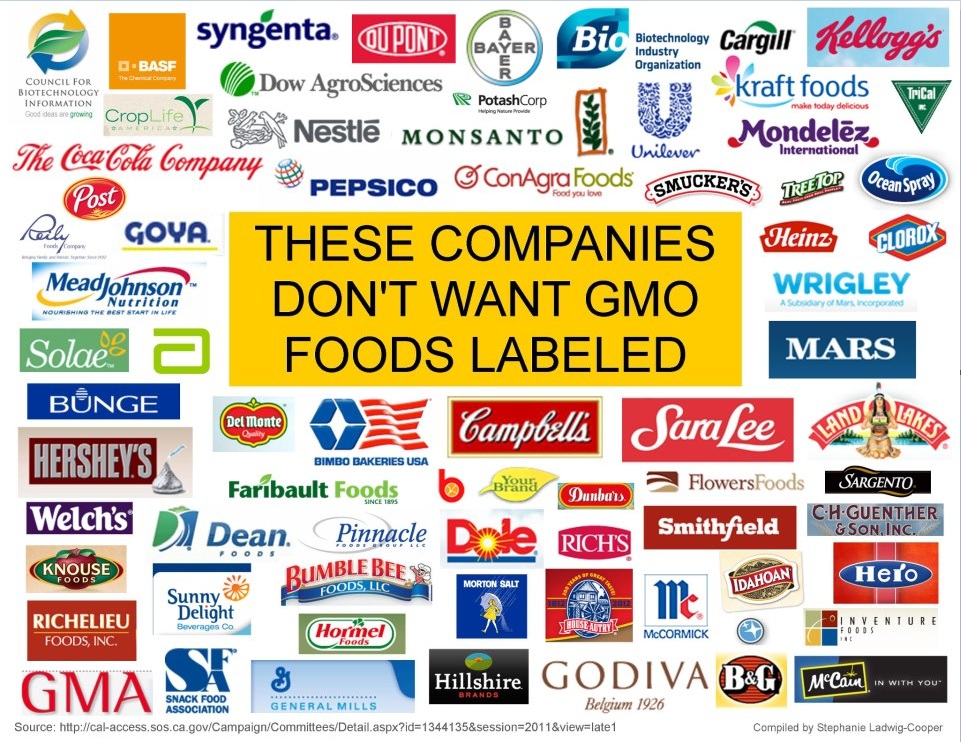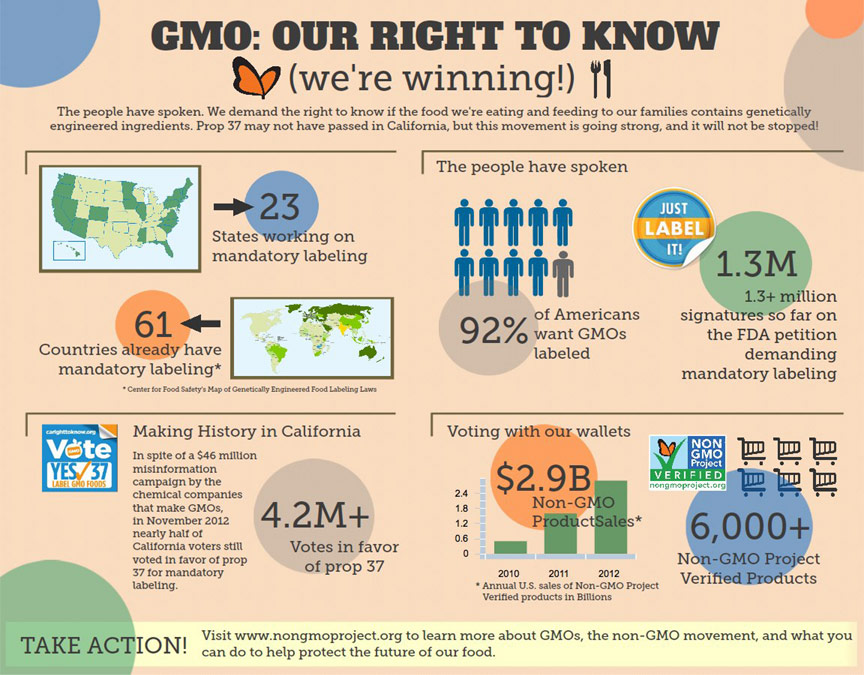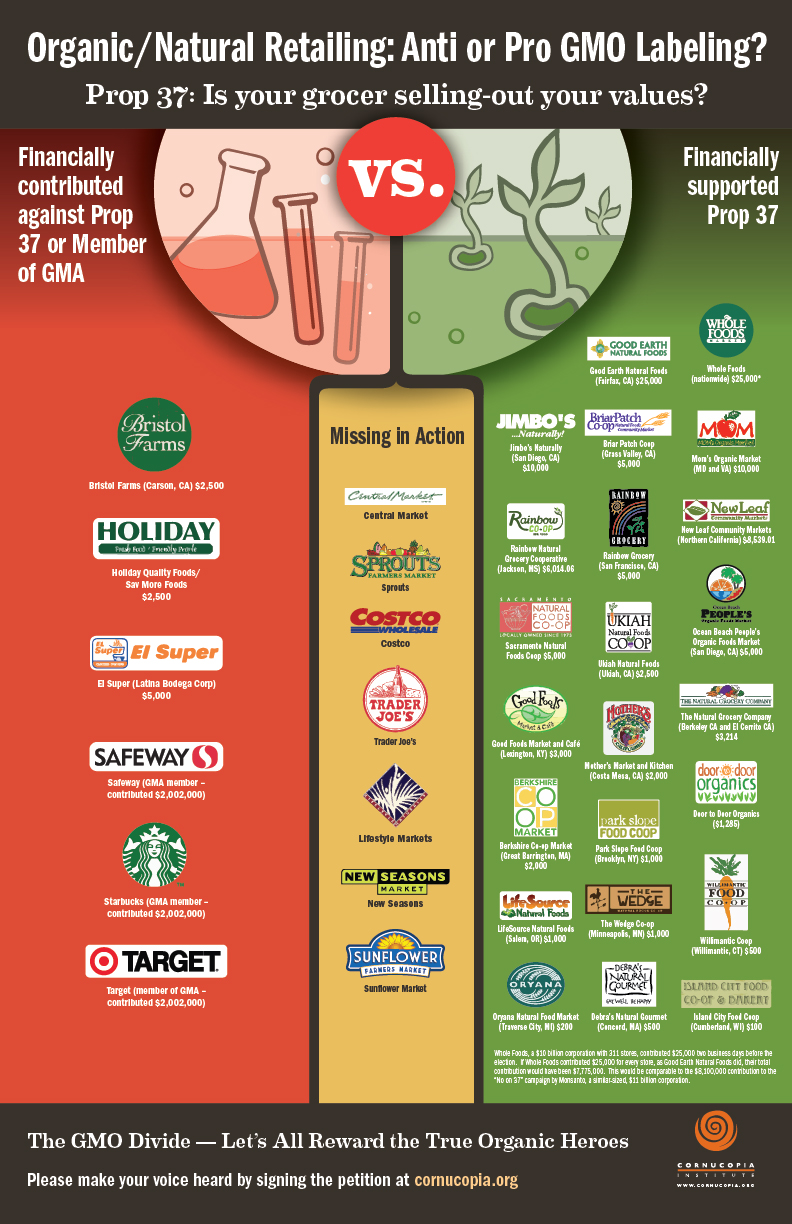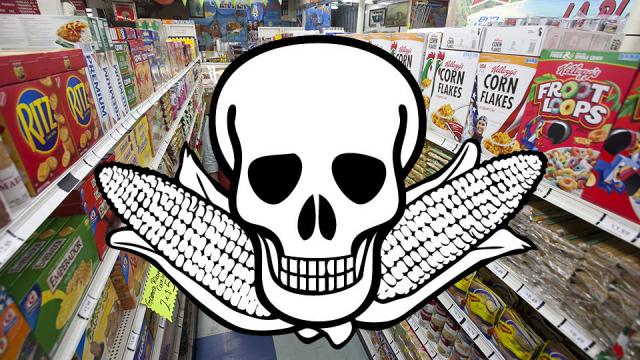
On November 5, Washingtonians voted down Initiative 522 that would have mandated GMO labeling on all retail food and agriculture products. The initiative failed by nearly a six-point margin, with 47.05% voting Yes and 52.95% voting No to require disclosure of genetically engineered ingredients in the food we consume.
As I reported last week, more than $22 million were spent by the “No on 522” campaign, the majority coming from big agribusiness and umbrella organizations like the Grocery Manufacturers Association. Money talks, and these dollars were spent to defeat the most expensive single-issue campaign in Washington’s history. Public response to the defeat ranged from Stephen Colbert’s satire to a contrast of “Yes” and “No” stances, to calls for “deeper reform.”
Prior to the election, I spoke with friends in Seattle, Olympia and Bellingham who had no doubt that the measure would pass. I can’t say I’m surprised that I-522 failed, but I can say that complacency on the side of would-be “Yes” voters is a growing challenge to safe legislative policies. Complacency has always been one of the biggest challenges to democracy. While agribusinesses funded an untruthful campaign to support their economic interest, concerned citizens and health groups mobilized to inform voters and rally support for safe labeling practices.
It comes down to this: if more people knew and cared about the issue, and how it affects their daily food choices, consumer information, and basic human right to food safety, perhaps the measure would have passed. But my intuition is that many of the people who knew and cared assumed the measure would pass, and therefore didn’t bother to vote. It reminds me of a popular quote that was shared widely following the 2000 elections, which was attributed to 18th century Scottish historian Alexander Fraser Tytler, but has since been found to be a splicing of two uncredited sayings:
“A democracy is always temporary in nature; it simply cannot exist as a permanent form of government. A democracy will continue to exist up until the time that voters discover that they can vote themselves generous gifts from the public treasury. From that moment on, the majority always votes for the candidates who promise the most benefits from the public treasury, with the result that every democracy will finally collapse due to loose fiscal policy, which is always followed by a dictatorship. The average age of the world's greatest civilizations from the beginning of history has been about 200 years. During those 200 years, these nations always progressed through the following sequence: from bondage to spiritual faith; from spiritual faith to great courage; from courage to liberty; from liberty to abundance; from abundance to selfishness; from selfishness to complacency; from complacency to apathy; from apathy to dependence; from dependence back into bondage.”
Although the author is unknown, the sentiment is widely understood: complacency kills. Unless the people in a democracy seek information and participate to support their values (liberty, freedom, justice...), the democracy cannot function. In a political climate where free market capitalism is king, the biggest dollars often get the most votes. As described by Berkeley economist and public policy professor Robert Reich in the Huffington Post:
“If our democracy was working as it should, presumably our elected representatives, agency heads, and courts would be making the rules roughly according to what most of us want the rules to be. The economy would be working for us; we wouldn't be working for the economy. "Instead, the rules are being made mainly by those with the power and resources to buy the politicians, regulatory heads, and even the courts (and the lawyers who appear before them). As income and wealth have concentrated at the top, so has political clout. And the most important clout is determining the rules of the game.”
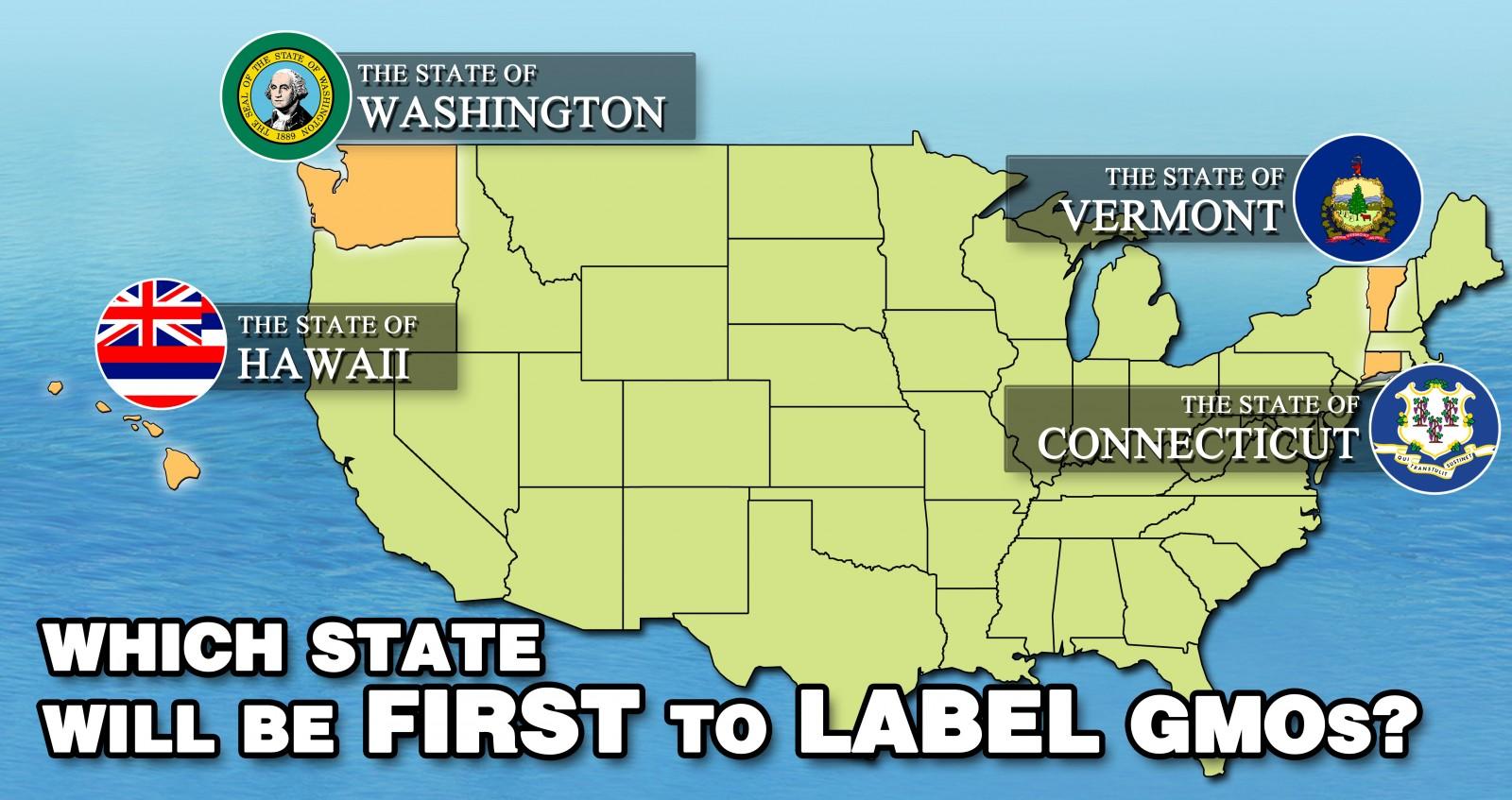
The once marginal view that powerful elites dominate politics with a goal of profit over citizen and environmental health has entered mainstream conversation. As people increasingly join in solidarity, we’ve seen the birth of movements such as Occupy Wall Street andIdle No More, through which citizens seek information, take a stand, spread truth, and demand rights and justice from their governments.
So, what’s next? Some proponents of mandatory GMO labeling, including one of the biggest “Yes on 522” financial donors, David Bronner of Dr. Bronner’s Magic Soap, are looking ahead to the 2016 presidential election. As Bronner explains, “We'll keep bringing the fight until they give in…The commitment of our movement... is huge and growing."
As concerns grow over GMOs in our food, and food safety in general, look to the Food and Drug Administration for starters. The FDA has overhauled 85-year-old food safety laws with the new Food Safety Modernization Act (FSMA). The FSMA bill passed Congress and is currently being codified with specific rules. As described by the National Sustainable Agriculture Coalition:
“The Food Safety Modernization Act is the first major update of federal food safety laws since 1938. FSMA gives the Food and Drug Administration broad new powers to prevent food safety problems, detect and respond to food safety issues, and improve the safety of imported foods. FSMA does not change food safety regulations for meat, poultry, and egg products, which are under the U.S. Department of Agriculture’s jurisdiction.
“FSMA authorizes new regulations at the farm level for producers and certain facilities. Specifically, FSMA mandates the establishment of:
• Standards for produce production (Produce Rule), and
• Food safety measures for facilities that process food for human consumption (Preventive Controls Rule).
The NSAC goes on to say:
“FSMA includes key provisions to make these new regulations scale-appropriate, conservation-friendly, and accessible to certified organic producers and value-added producers. The regulations focus on addressing food safety risks from microbial pathogen contamination (e.g., Salmonella, E. coli O157:H7, and Shigella). FSMA does not address food safety risks from genetically engineered crops, pesticide use, or antibiotic resistance. FDA has released its proposed (draft) Produce Rule and Preventive Controls Rule and is seeking public comments on both.”
During the rule-making phase, the FDA welcomes public comments on the proposed rules for produce production standards and food safety measures. As a young farmer myself, I know the importance this legislation represents, and the huge impacts it will have for small, sustainable farmers across the country.
Perhaps more importantly, it demonstrates that our entire food system is now on the drawing board -- and the FDA is giving us, the public, an opportunity to voice our concerns. In short: the federal government wants to hear from you! The FDA is taking open comments until Friday, November 15. The National Sustainable Agriculture Coalition offers a step-by-step guide to commenting here. If you’re a tweeter, check out #fixFSMA for updates and actions across the country.
The defeat of I-522 in Washington may have been a setback. Here's our chance to do better. Learn what’s going on in our food and agriculture system and spread the word to the people in your life. The future of our food system is on the table, and every one of us has a voice.
3 WAYS TO SHOW YOUR SUPPORT
- Log in to post comments


